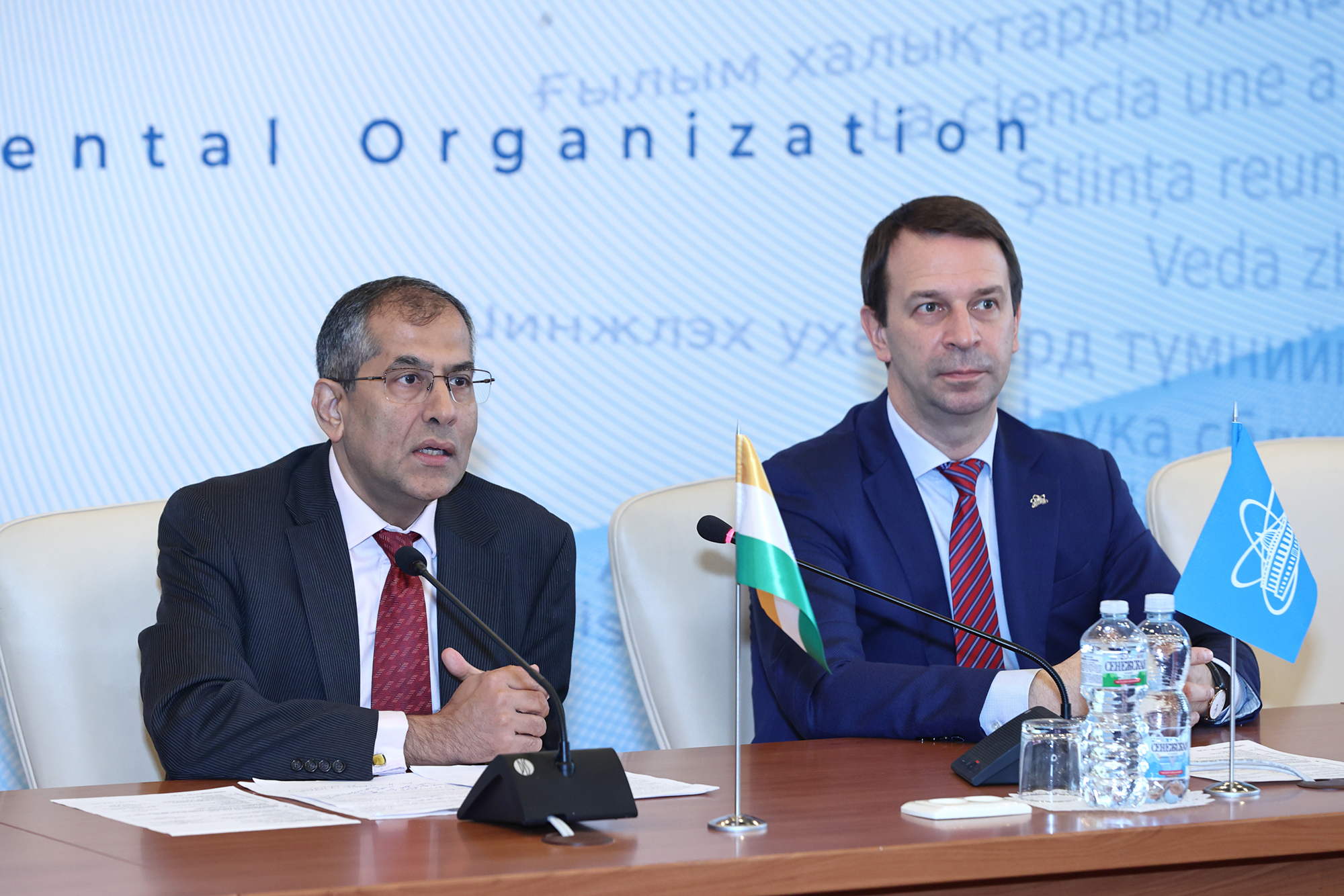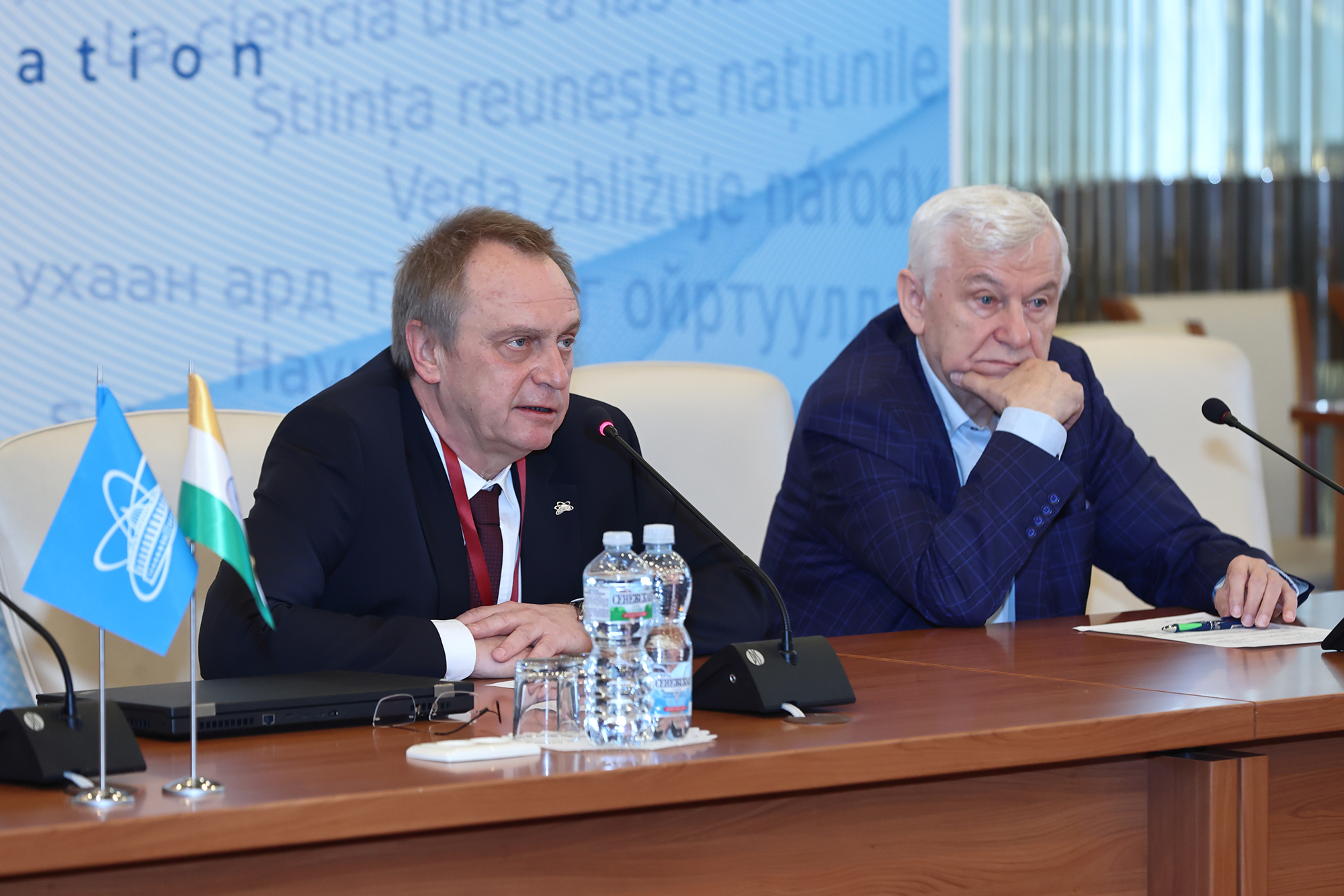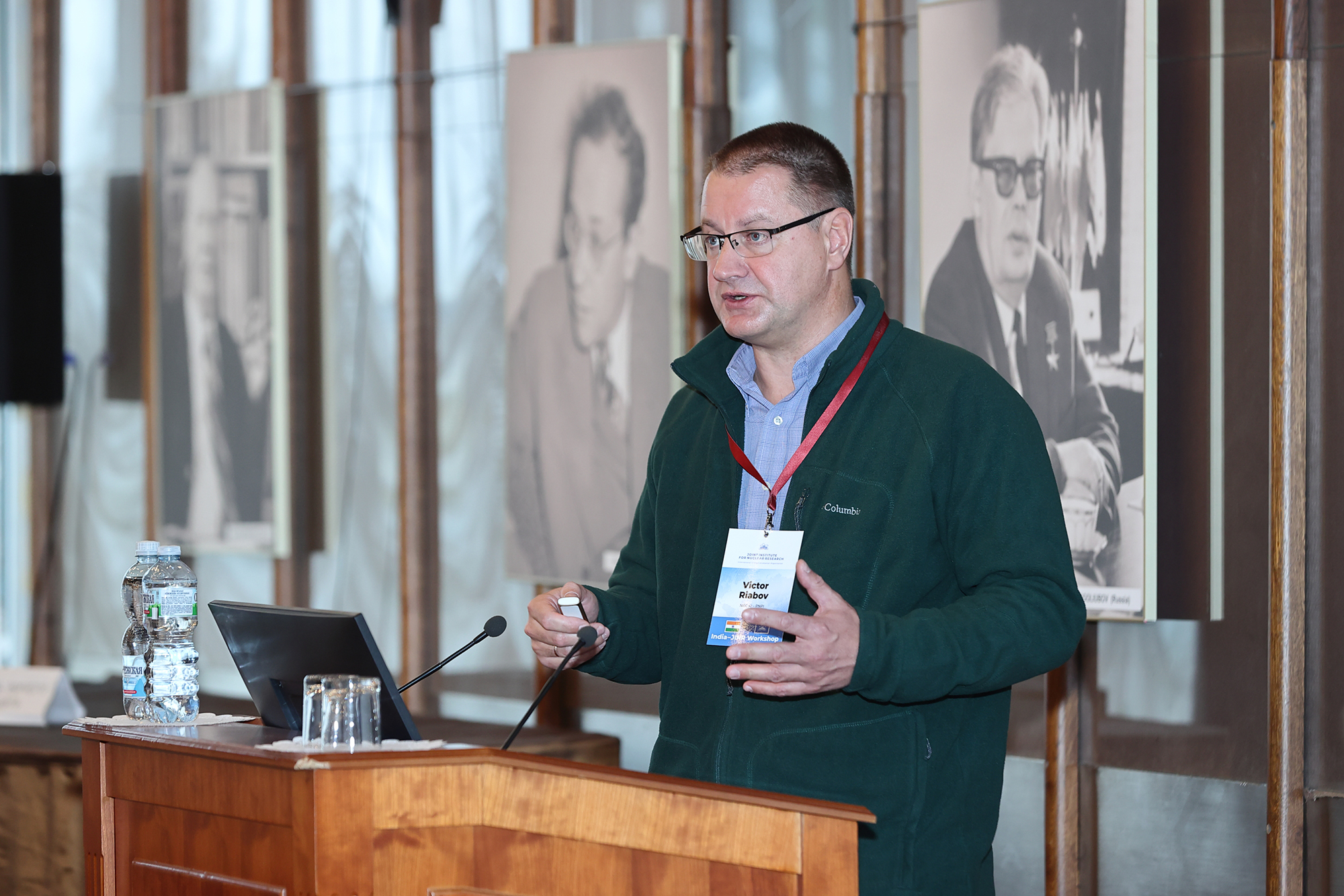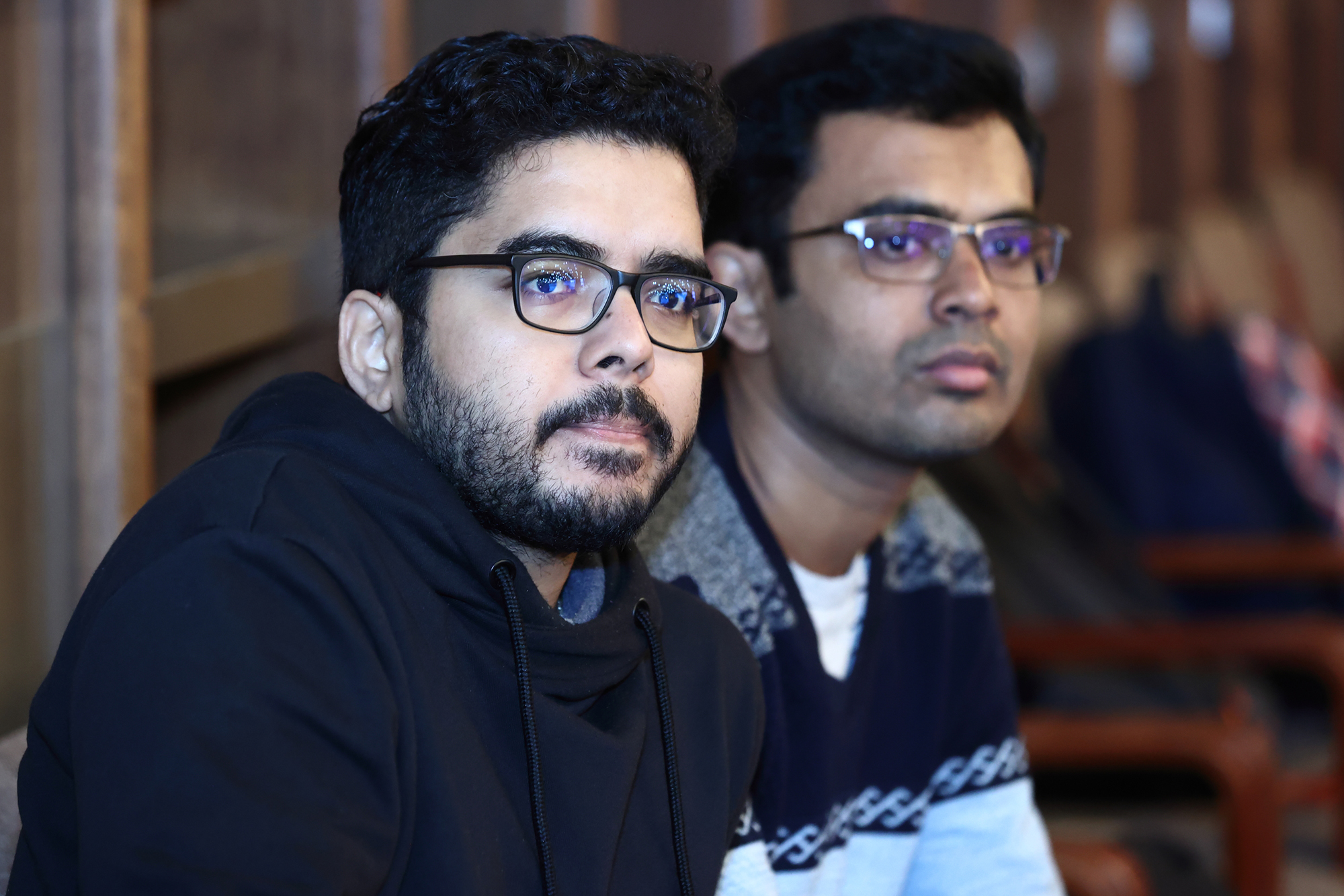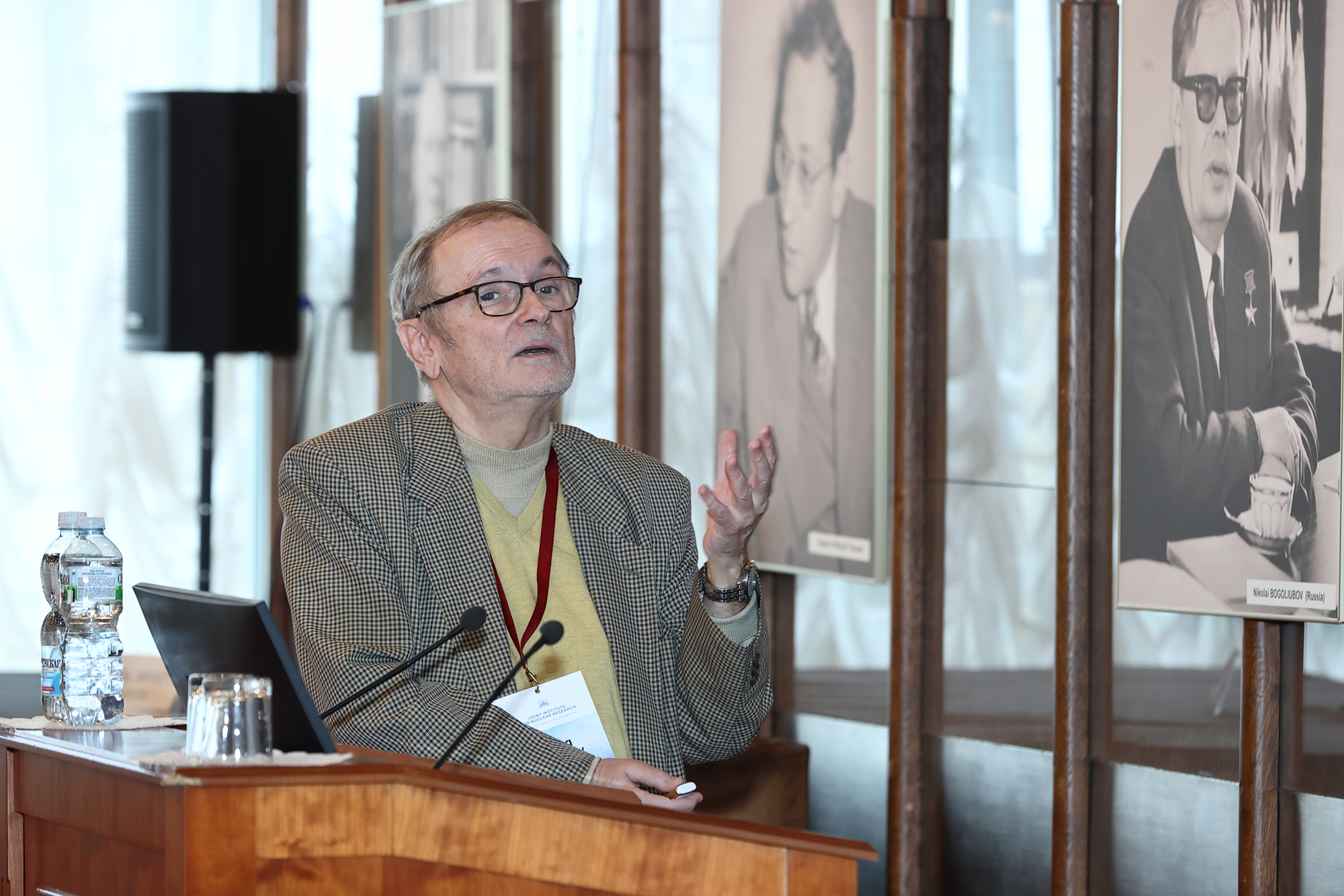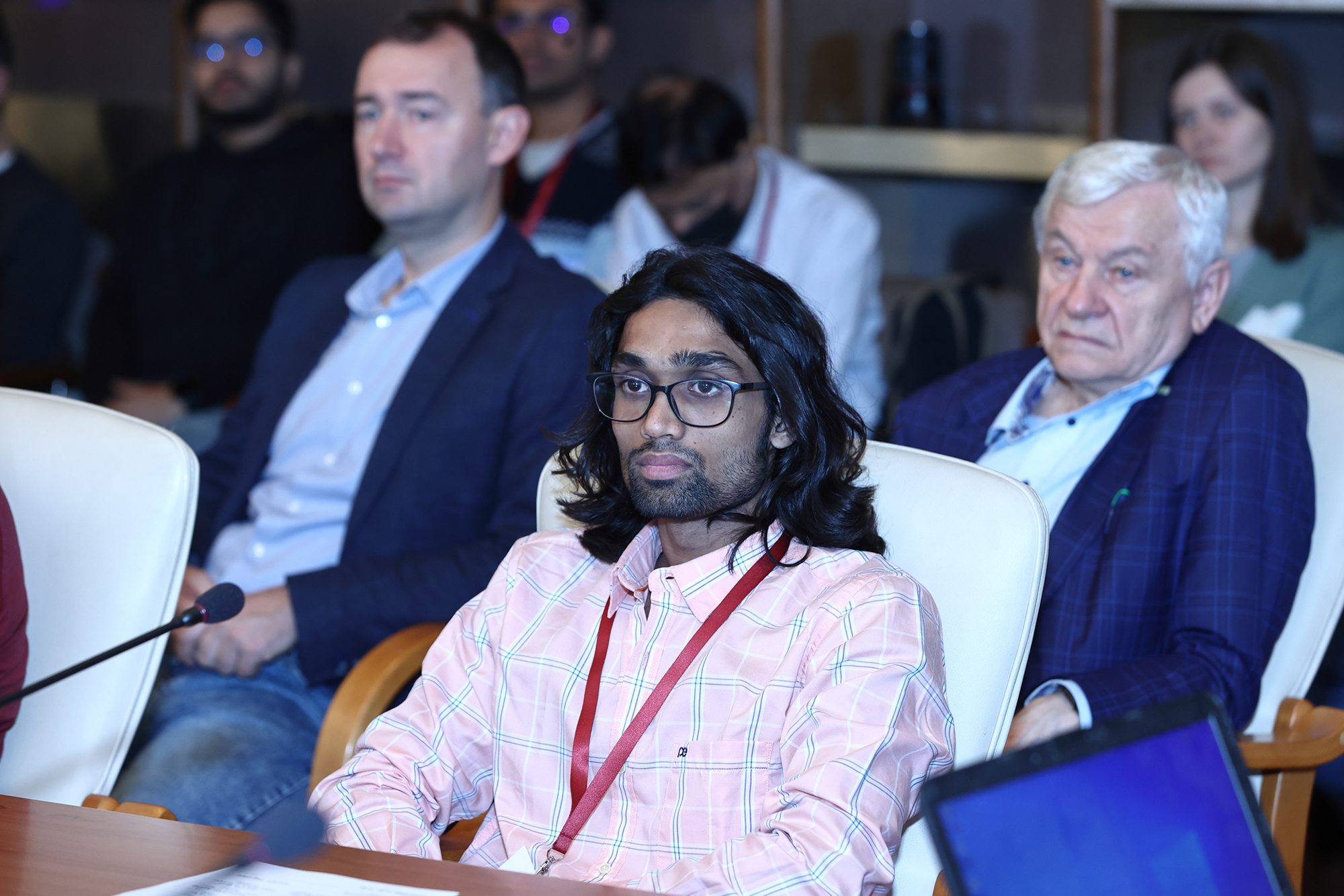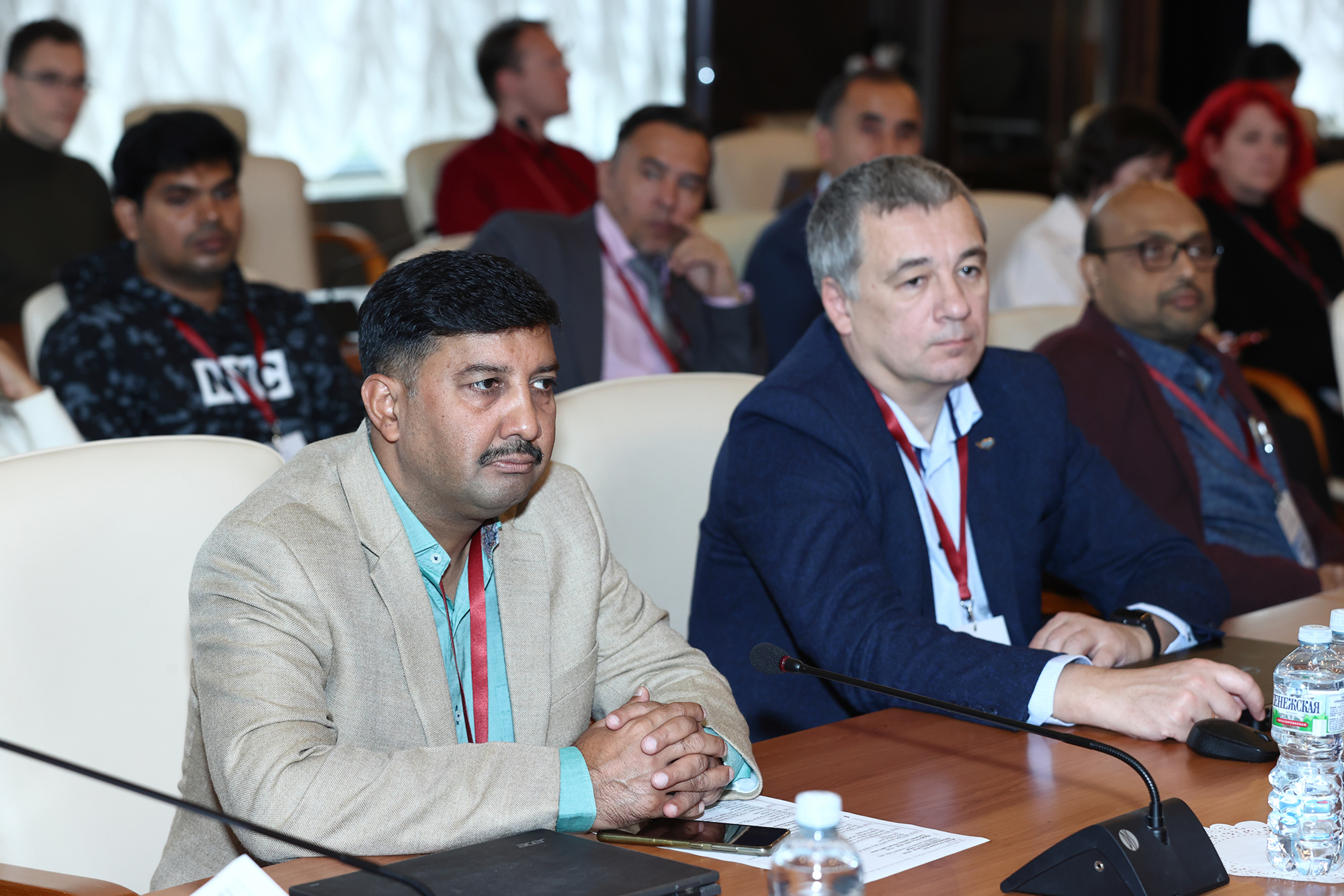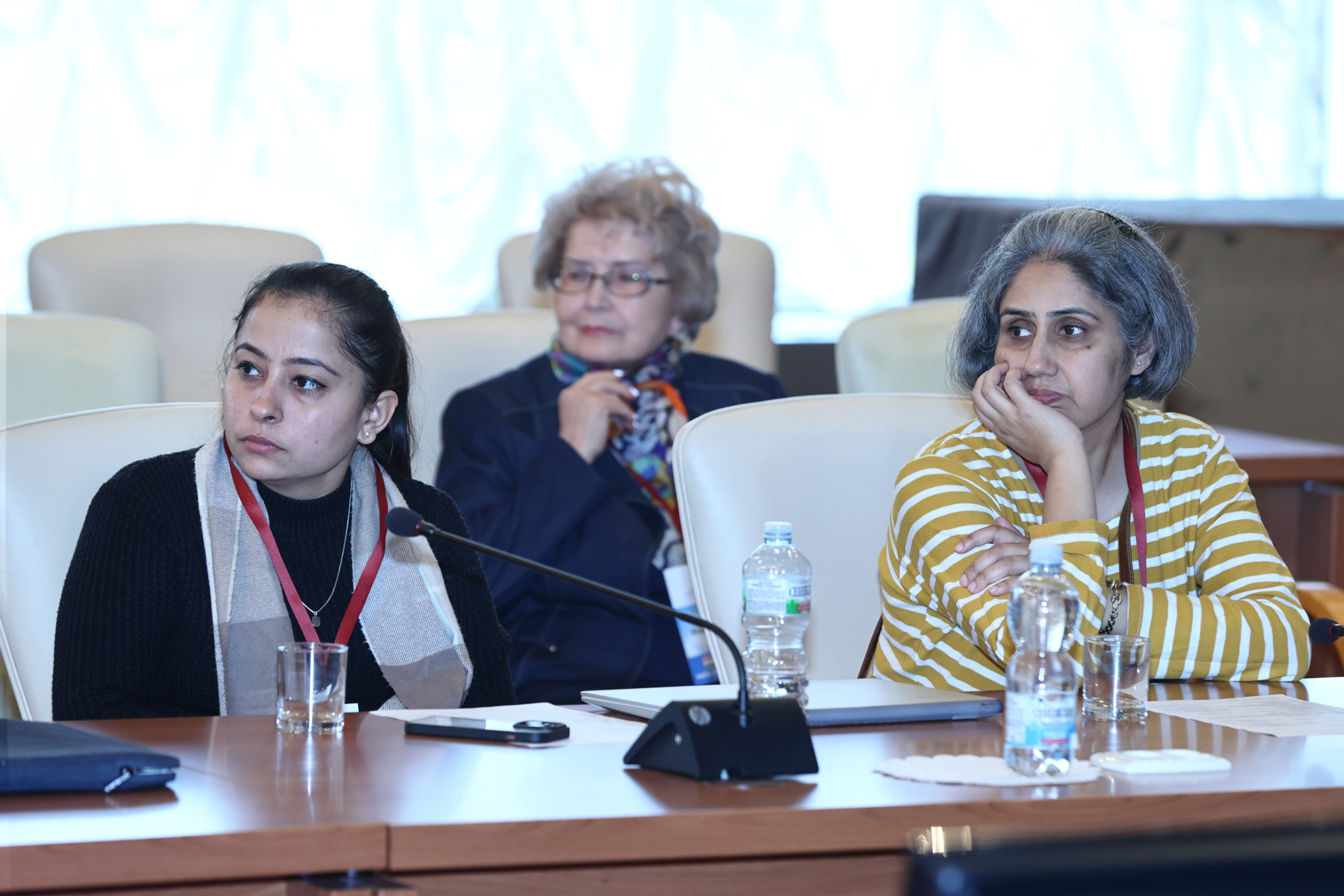JINR-India workshop taking place at Joint Institute
News, 17 October 2023
On 16 October, a workshop “India-JINR: Frontiers of Basic and Applied Research” started at the International Conference Centre at the Joint Institute for Nuclear Research. A delegation of scientists from leading universities and scientific centres of India came to Dubna to participate in the event. In addition, many specialists from Indian research centres are taking part in the workshop online. In total, the event brought together more than 200 participants.
Ambassador of India to Russia, H. E. Pavan Kapoor, who visited JINR on that day, and JINR Director Grigory Trubnikov welcomed the participants of the meeting. In his welcoming speech, the Ambassador of India highly appreciated the effectiveness of cooperation between Indian physicists and JINR scientists. “I am very glad to see so many Indian physicists participating in this meeting in-person and online. It shows how it is important for scientists to interact and cooperate. India has its own strong scientific schools, but, at the same time, it is very important for our scientific community to exchange experience. You have an impressive scientific infrastructure. It is really great that Indian scientists have an opportunity to come here and see it with their own eyes,” he highlighted.
JINR Director Grigory Trubnikov outlined areas of the JINR-India cooperation development. Foremost, he believes, the parties should be involved in each other’s scientific projects more actively. “We have cooperated with India for a long time, but, as a rule, at sites and facilities of other scientific centres,” Grigory Trubnikov explained. “At present, we intend to organize mutual projects on the territory of Dubna and India. Firstly, it is research in heavy ion physics, because our NICA Project is becoming a very attractive experiment, in which it is possible to perform the most ambitious physics experiments. The extensive experience of Indian scientists in this field is of great interest to JINR.”
In addition, Head of the Institute proposed to organize a Dubna-India joint school on theoretical physics and mathematical methods, emphasising that theoretical physics and fundamental mathematics are traditionally strong in India and at JINR.
Employees of the Institute, who came to work here from India, supported the idea of intensive scientific exchange between India and JINR. “We are very glad that we were able to organize this event. There has been an intensive scientific exchange between India and JINR for many years and now this seminar creates a platform for Indian scientists visiting JINR for the first time. I think the main aim of this scientific meeting is to develop academic exchange for the most effective cooperation. As scientists, we hope for further development of work with young scientists, who came to Dubna for the first time. We would like the young generation to be involved in JINR projects more actively,” Trambak Bhattacharyya, a senior researcher at the Laboratory of Theoretical Physics at JINR, said.
During the four-day workshop, JINR scientists and Indian colleagues will hear and discuss about 90 reports on theoretical and experimental aspects of research in particle and nuclear physics, condensed matter physics, and areas of applied research.
The Indian delegation will get acquainted with the flagship projects and basic facilities of the scientific infrastructure at JINR, leading studies, and future experiments.
The seminar will conclude on 19 October.
